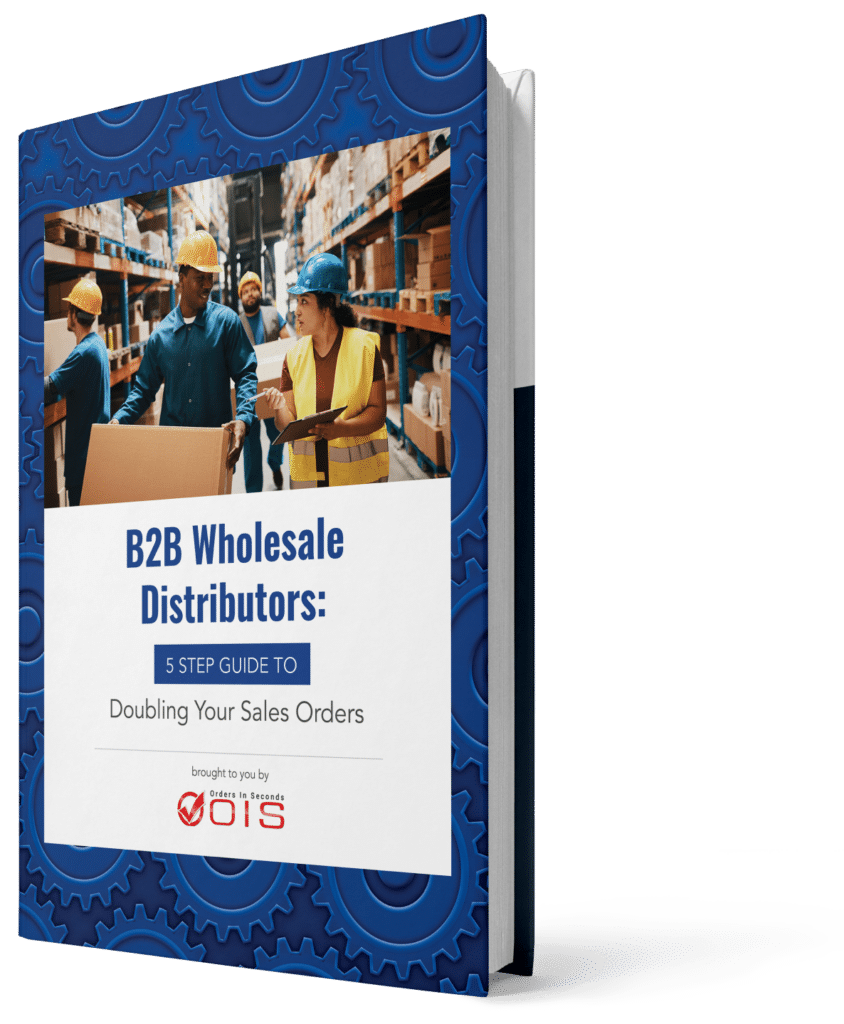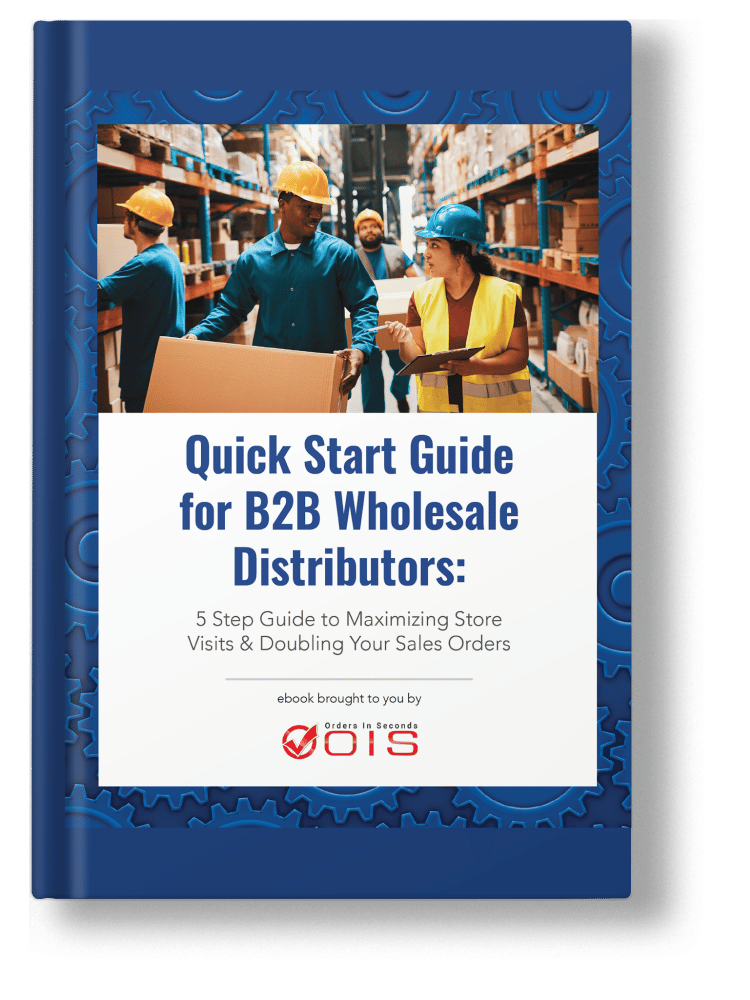Efficient wholesale logistics are crucial for your business’s success. This article provides concrete strategies and solutions to improve your supply chain from warehousing to transportation. Discover how to overcome the industry’s common challenges, including cost management and timely deliveries, while incorporating technological advancements for an agile operation. With this practical guide, fine-tune your logistics for enhanced performance and customer satisfaction.
Key Takeaways
- Efficient wholesale logistics is crucial in reducing operational costs such as spoilage, fuel, and shipping, and is essential for customer satisfaction, influencing repeat business and referrals.
- Wholesale logistics strategies must evolve to include the use of technology such as automation, AI, and real-time analytics to improve inventory management, distribution, and transportation, and adapt to environmental sustainability demands.
- Continuous adaptation and strategy reviews are necessary to meet the dynamic nature of wholesale logistics, which includes fostering strong vendor relationships, staying ahead of market and technology trends, and integrating ethics and sustainability into business models.
Table of Contents
- Exploring the Backbone of Wholesale Business: Logistics in Action
- Navigating the Core Elements of Wholesale Logistics
- Overcoming Wholesale Logistics Challenges
- Harnessing Technology for Enhanced Logistics Efficiency
- Adopting Best Practices in Wholesale Logistics Management
- Anticipating the Future of Wholesale Logistics
- Tailored Logistics Solutions for Your Business
- Summary
- Frequently Asked Questions
- Streamline Your Logistics with Orders in Seconds
Exploring the Backbone of Wholesale Business: Logistics in Action

We’ll embark on a journey through wholesale logistics, examining the path of goods from suppliers to customers. It’s a process that influences a business’s bottom line significantly, affecting costs such as:
- spoilage
- fuel
- shipping
- storage
Not to mention, it has a profound impact on customer satisfaction, shaping the condition and timeliness of product delivery, and ultimately affecting repeat business and referrals on account of these factors, all of which contribute to a strong connection between the business and its customers.
Acting as the industry backbone linking producers, wholesalers, and retailers, logistics maintains a smooth supply chain, ensuring a seamless flow of goods to meet customer demand.
Utilizing tools like an AI website builder can further streamline logistics communication by creating intuitive and efficient platforms for managing orders and interactions.
Understanding Wholesale Logistics
For wholesalers, safeguarding product quality and safety, particularly for perishables that need specific store and transportation conditions, is of utmost importance. Moreover, efficient and accurate order processing is paramount in wholesale logistics to achieve high customer satisfaction and adhere to industry standards.
Flexibility in logistics operations and collaboration with retailers are imperative to ensure prompt deliveries and meet inventory needs.
The Critical Role of Logistics in Meeting Customer Demand
Being upfront about delivery times is crucial for managing customer expectations and satisfaction, especially for orders that take longer due to overseas shipping or custom requirements. Additionally, supply chain optimization not only reduces costs and ensures product availability but also contributes to an improved customer experience and satisfaction.
Regularly collecting customer feedback is essential for logistics companies to identify areas for improvement, ensuring continued customer satisfaction and service enhancement. Use an AI form builder to create customer feedback forms that won’t take up your time.This strategy is further enhanced by focusing on key sales differentiators, such as reliability, competitive pricing, and exemplary customer service.
Navigating the Core Elements of Wholesale Logistics
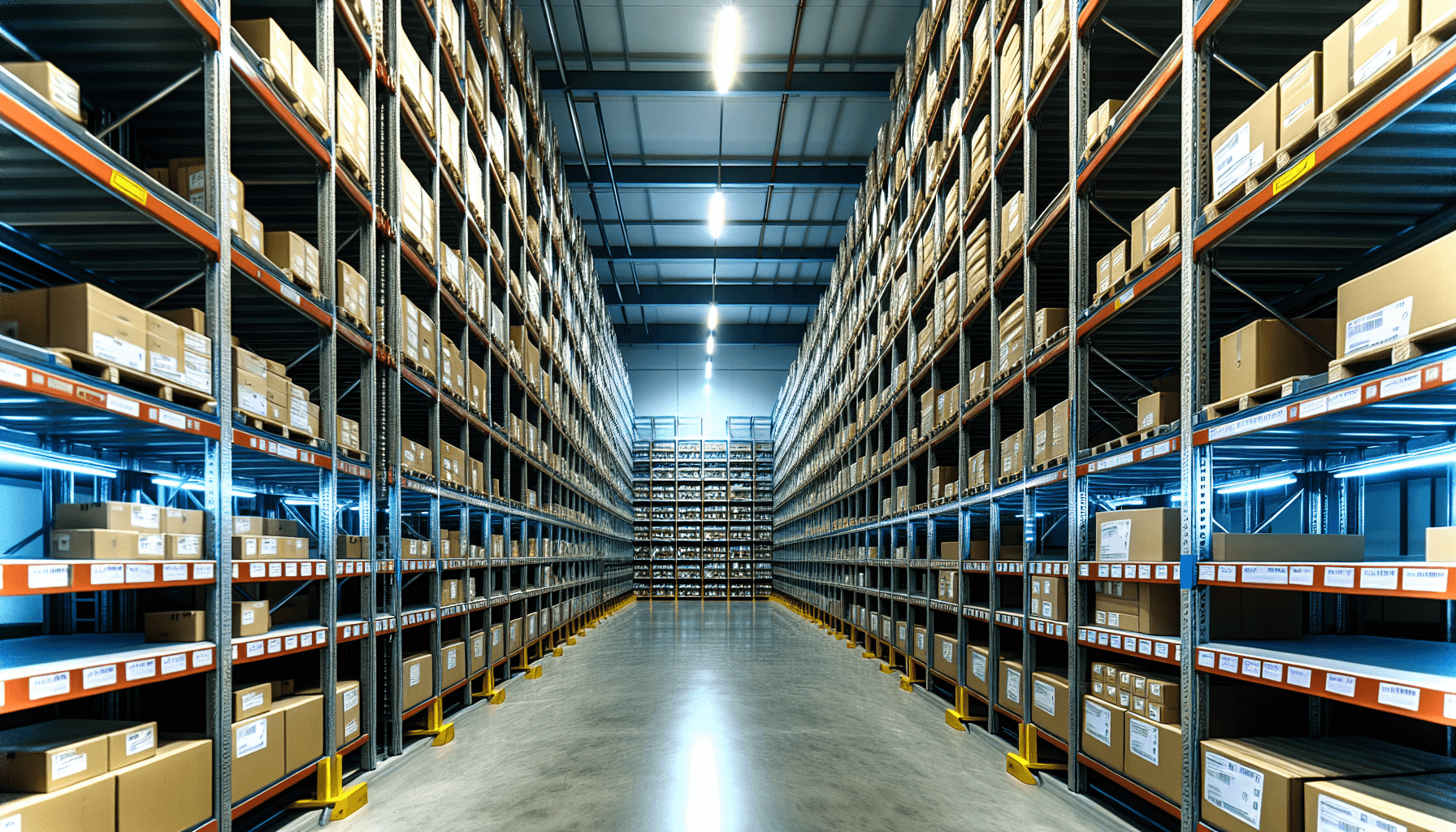
Now, we’ll delve into the fundamental elements of wholesale logistics. The seamless coordination of logistics processes from raw materials to finished products is crucial for cost reduction and efficiency improvement.
Inventory management, warehousing solutions, and distribution and transportation all play a pivotal role in a successful logistics strategy.
It’s worth noting that many of these areas critical to logistics are prone to errors. Dive deeper into common pitfalls and learn how to navigate them effectively in our free eBook: “Avoid the Top 5 Mistakes Wholesale Distributors Make”
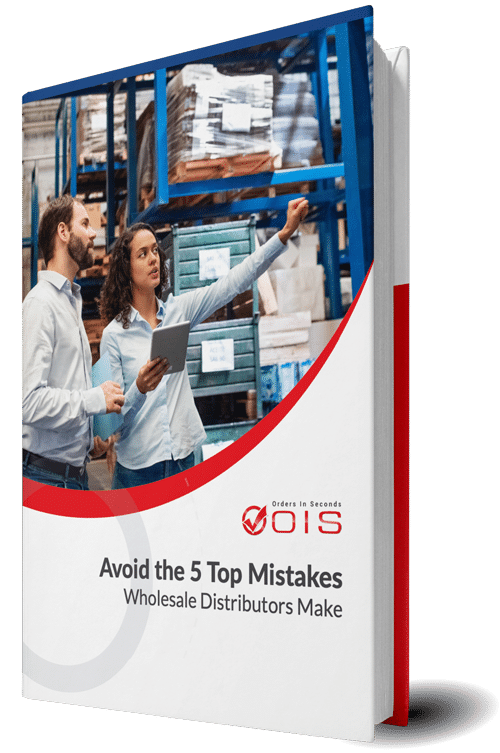
Avoid the Top 5 Mistakes Wholesale Distributors Make
Fine-Tuning Inventory Management
Optimal inventory management plays a critical role in wholesale logistics since it entails balancing stock levels to fulfill customer demand and contain costs. This ensures smooth operations and enhances overall efficiency. Predictive analytics can forecast demand to optimize inventory placement and workforce planning, helping to manage resources proactively. On the other hand, excessive inventory elevates logistics risks like increased costs and can lead to losses due to incidents, underscoring the importance of dependable suppliers.
Optimizing Warehousing Solutions
Warehousing operations act as indispensable storage nodes within the supply chain. Implementing strategies such as utilizing vertical space and optimizing layout are effective for warehousing management.
Integrating warehouse management systems with complementary systems and employing connected software can enhance warehouse operations efficiency and automate the return process.
Streamlining Distribution and Transportation
Optimized distribution systems help save time, enhance product safety, curb losses, and are vital in maintaining balanced inventory levels, thereby lowering costs and boosting customer satisfaction.
Innovations such as AI-enabled distribution planning allow companies to reduce inefficiencies and enhance on-time delivery rates, contributing significantly to overall logistics performance.
Overcoming Wholesale Logistics Challenges

Despite the advantages offered by logistics, it comes with its share of challenges. From adapting to market dynamics and controlling costs to achieving timely deliveries consistently, each hurdle is a stepping stone towards refining our logistics strategies.
Adapting to Market Dynamics
In the rapidly evolving wholesale market, unpredictability can complicate demand forecasting and maintaining appropriate inventory levels. The uncertainties in consumer preferences and economic conditions can lead to difficulties in sustaining on-time deliveries.
Therefore, a regular review and updating of logistics strategies is vital for wholesalers to accommodate ongoing changes such as government regulations and energy constraints.
Wholesale logistics are significantly impacted by elements like fuel prices, labor costs, and operational expenses. Real-time monitoring software helps carriers track and improve fuel usage, detect inefficient driving habits, and find optimal fuel prices.
Furthermore, consolidating shipments to reduce the number of trips and thereby saving on fuel costs requires strategic logistical coordination by a team.
Achieving Timely Deliveries Consistently
Within the logistics sphere, punctual deliveries hold paramount importance. Autonomous vehicles, drones, and robotics are at the forefront of reducing transit times, lowering accident risks, and enhancing logistical efficiency.
Predictive maintenance powered by big data analytics aids in optimizing driving habits, which in turn minimizes vehicular breakdowns and helps avoid delivery delays. Going the extra mile with this approach ensures a smoother and more efficient transportation process.
Harnessing Technology for Enhanced Logistics Efficiency

In the digital era, technological progress is instrumental in transforming the logistics landscape. From big data analytics and cloud computing to automation, technology is enhancing logistics efficiency and revolutionizing operations.
Automation in logistics offers several benefits, including:
- Diminishing the need for manual handling in logistics tasks, resulting in less errors and punctual deliveries
- Increasing operational efficiency
- Reducing physical labor costs
Technologies such as robotic packing and automated document insertion systems are examples of automation in logistics.
Notably, industry leaders like Amazon and Alibaba are investing heavily in automated systems within their fulfillment centers to handle tasks more efficiently.
When discussing automation, it’s important to recognize that its benefits extend beyond just logistics; it can also significantly impact your sales processes. To learn more about boosting your sales orders through effective strategies, check out our eBook, ‘Double Your Sales Orders in 5 Steps,’ below.”
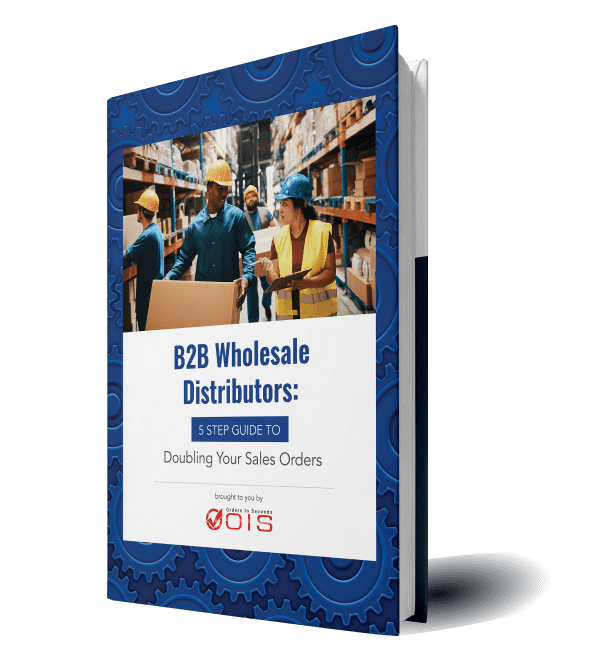
Double Your Sales Orders in 5 Steps
This exclusive eBook is packed with real-world, data-driven concepts that can help maximize your store visits and double your sales. Get it for FREE – Today!
In logistics, cloud-based systems offer several benefits, including:
- Increased visibility
- Facilitated data centralization
- Adaptable and personalized logistics strategies
- Real-time insights
- Route optimization
- Effective inventory control
Cloud-based tools play a key role in streamlining logistics. From inventory management and accounting to route planning and real-time tracking, software helps centralize data and improve visibility across operations.
Inventory systems like Fishbowl and accounting platforms such as QuickBooks Online are common examples. When integrated, they sync inventory, warehousing, and manufacturing activity directly with financial records—making it easier to track true costs and cash flow without duplicate data entry.

Success in wholesale logistics extends beyond merely grasping the basics. It’s about:
- Adopting best practices
- Fostering strong vendor relationships
- Committing to continuous learning
- Regularly reviewing strategies for agility
- Prioritizing sustainable and ethical logistics.
Establishing a robust vendor relationship management system is pivotal for a successful supply chain, resulting in:
- Adopting best practices
- Fostering strong vendor relationships
- Committing to continuous learning
- Regularly reviewing strategies for agility
- Prioritizing sustainable and ethical logistics.
Fostering Strong Relationships with Vendors
Establishing a robust vendor relationship management system is pivotal for a successful supply chain, resulting in:
- Enhanced data flow
- Seamless operations
- Improved procurement and investment process
- More informed decisions
- Better negotiations
Commitment to Continuous Learning
In logistics, continuous learning is vital to nurture organizational agility, allowing teams to quickly adjust to new technologies and shifting market demands. Establishing structured continuous learning programs, like online training modules, equips logistics professionals with crucial competencies, keeping them competitive in the marketplace.
Regular Strategy Reviews for Agility
Periodic reviews of logistics strategies are integral to align them with the overall corporate strategy, ensuring enduring agility to adapt to market changes. Continuous integration of logistics into strategy formulation requires top management initiative and integration with the company’s long-range planning.
Prioritizing Sustainable and Ethical Logistics
Sustainable logistics practices are increasingly important to Gen Z and other younger generations when choosing an employer, affecting a company’s ability to attract new talent. Supply chain sustainability and ethics can be fostered through collaborative practices that involve shared risks and rewards, breaking down traditional barriers and aligning objectives.
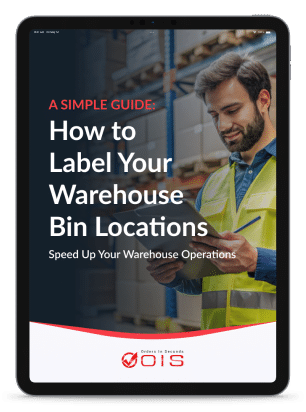
Speed Up Your Warehouse Operations
A Simple Guide: How to Label Your Warehouse Bin Locations
Looking ahead, it’s vital to foresee the future trends in wholesale logistics. From green logistics initiatives to emerging trends like direct-to-consumer models, the future is rife with possibilities and challenges.
Embracing Green Logistics Initiatives
More and more customers favor businesses that exhibit environmental responsibility in their offerings, fueling the need for eco-friendly logistics solutions. Investments are being made into solar and wind energy solutions to power logistics facilities in an effort to adopt renewable energy sources.
AI and Machine Learning Integration
Artificial Intelligence applied to logistics utilizes historical data and external parameters to predict market and consumer demand, enhancing resource allocation and planning in logistics strategies.
Emerging technologies in the logistics sector, such as autonomous trucks and drones, will expedite deliveries and improve fuel optimization, prompting strategy changes to embrace these efficiencies.
Direct-to-Consumer Model Emergence
The Direct-to-Consumer (D2C) model involves manufacturers selling directly to consumers, effectively removing the need for intermediaries like wholesalers or retailers. As the rise of D2C continues, it allows brands to provide a more personalized shopping and customer experience.
As our exploration of wholesale logistics draws to a close, let’s bear in mind that there isn’t a universal solution. Tailored logistics aligns logistics services with a company’s operational goals and market dynamics, providing significant benefits for wholesalers.
Customized Logistics Strategies
As supply chain complexity escalates, the need for customized logistics plans becomes essential, calling for solutions that go beyond mere product transportation. Anticipating change and developing adaptive strategies minimize risk and allow for continual innovation in logistics and planning.
Cutting-edge Tech Implementation
Companies integrate advanced technologies like AI-driven analytics and real-time tracking to boost logistics operations. To prevent data breaches, which are predominantly caused by breaches and human error in logistics, effective cloud governance and regular training are essential.
Commitment to Sustainability and Ethics
Integrating sustainability into business models offers several benefits, including:
- Proactive measure against potential future costs associated with climate inaction
- Appeal to a growing number of consumers willing to spend more on sustainable products
- Competitive edge and enhanced brand reputation through transparent and sustainable logistic operations.
As we reach the end of our journey through the world of wholesale logistics, we hope that the insights offered will help you navigate this complex yet fascinating field. From understanding core elements and overcoming challenges to leveraging technology and adopting best practices, each step brings you closer to achieving logistics excellence.
Frequently Asked Questions
Logistics is crucial in the wholesale business as it connects producers, wholesalers, and retailers, impacting costs and customer satisfaction with product delivery.
To fine-tune inventory management in logistics, you can use predictive analytics to forecast demand and optimize inventory placement, while also ensuring a healthy stock level to avoid excess storage expenses.
What are some challenges in wholesale logistics, and how can we overcome them?
To overcome challenges in wholesale logistics, it’s important to regularly review and update logistics strategies, implement cost control tactics, and leverage technology for timely deliveries. This can help in adapting to market dynamics, controlling costs, and achieving consistent and timely deliveries.
Technology, such as big data analytics, cloud computing, and automation, play a crucial role in enhancing logistics efficiency by optimizing routes and schedules, predicting maintenance needs, and automating tasks (Smith et al.).
In wholesale logistics management, it’s crucial to prioritize strong vendor relationships, continuous learning, agility, and sustainable logistics practices. Regularly reviewing strategies can also contribute to success in this area.
Streamline Your Logistics with Orders in Seconds
Efficient logistics management is the backbone of any successful business, influencing costs, customer satisfaction, and overall operations.
With Orders in Seconds OIS Pro App, streamline your logistics operations effortlessly in the field. Utilize features like route management for optimized deliveries, saving valuable time, fuel, and other resources, and real-time inventory visibility for informed decision-making on the go. Leveraging an order management software like OIS will undoubtedly elevate your business to new heights, making logistics management a breeze.
Want to experience the difference firsthand? Schedule a free demo today and unlock the full potential of your logistics operations.



